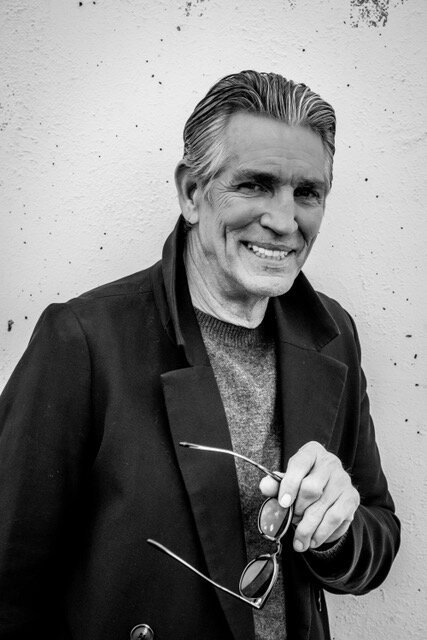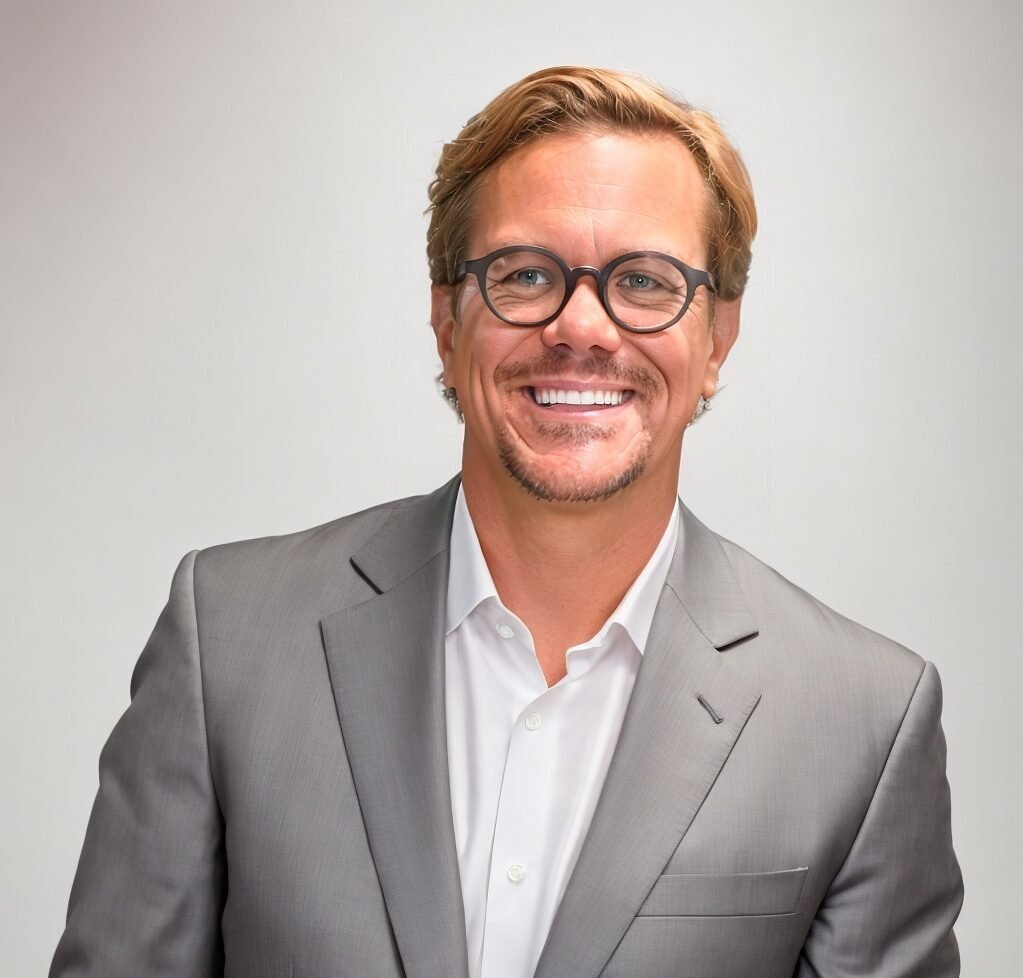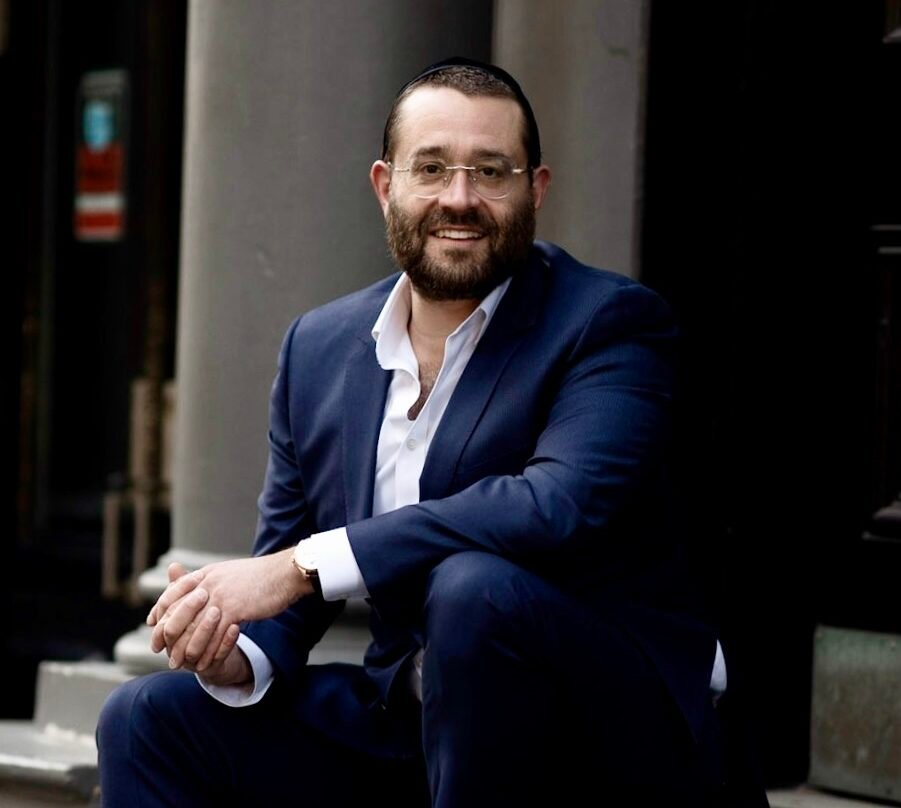I went one on one with Eric Roberts. A prominent actor since the 1970s, Eric has more credits to his name than anyone else in Hollywood.
Adam: Thanks for taking the time to share your journey and what you’ve learned to date. What is something about you that your fans don’t know?
Eric: I’m kind of an old lady. I like to play a bunch of tough you masculine assholes. I drive slow. I drive a big Cadillac. I go to bed early. I like to get up semi-early. I’m in love with my wife of 27 years. I do all the cliche boring stuff. That’s kind of me. And nobody thinks I’m interesting and dangerous and oh my god, what’s he gonna do next? I’m not that guy. I just played those guys and, in fact, I would dare to call myself boring. And I think my stepdaughter, who’s a chef, would probably agree with you.
Adam: You’ve had a high profile life in the public eye. What are some of the setbacks and challenges that have been most instrumental to your development and success?
Eric: Well, I got famous as a very young man. I was 21 years old when I became an international movie star. And what that does, oddly enough, is everybody around you changes because they all expect you to change. And it’s a very odd world, the world of fame, because you realize it’s something everybody wants. Everybody wants to walk into a room and have everybody know who they are and even if you don’t consciously think that when you walk into a room as a stranger, you want that. It’s just more comfortable. And so, you know, fame is handy and fame makes for comfort. And I’ve also found that being recognizable- I’m welcome everywhere and it’s such a luxury and it’s such a pleasure to have people go, “Oh my god, that’s Eric Roberts. Please come in here” And, “That’s him!” That’s really how it is worldwide for me. And especially in Europe, especially in Russia, but, you know, all over the world. And I’ve even stopped noticing and I’m so spoiled. Like people will say to me who don’t know me, they’ll say, “Wow, everybody’s looking at you.” And I realize I don’t even notice it anymore. I’m so jaded.
Adam: Why do you think you were able to enjoy such great success early on in your career? And why do you think you’ve been able to sustain success all these years? I saw that you have a record in terms of the number of credits over the years. What do you attribute to both of those attributes?
Eric: Well, this is kind of a long story. Are you ready? When I first got into movies in 1978- and when you’re a mainstream movie star back then, you made one movie a year, maybe two- but that was a lot. You made one movie a year. You did pre-production and post production, press tours; so you’re busy. And, you know, you didn’t have a lot of time on your hands. It was not like free time, you just gave more time to film, and it also took longer to make because of the medium. It was filmed with real technicians into real work into real cameras into real stuff into real lighting. It took a lot of stuff. So it took longer and it was wonderful. And in 1993 I’d been married about a year to my wife who I made my manager a few years later. She said to me in 1993, “If you could do anything every day of your life, what would it be, Eric?” I said, “I’d be on a movie set every day making a movie”. She goes “Well that’s not gonna happen.” Okay, then 2003 comes and she says “Something weird is happening; everybody’s buying cameras because they can afford them and they’re all calling for you worldwide.” And from 2003 to 2010 everybody bought their own cameras. They didn’t have to rent from arriflex; everybody owned their own camera. And they started making their own movie independently all over the world. And we got about a dozen offers a day from 2003 to 2010 and we started exploiting them and we saw the world for free and we just had a blast. And in that interim, I found out that my huge agency was never telling me about small movies; independent stuff. And I found out it was all based on, like, money because I don’t have money involved. And so I fired them and I made my wife the boss. So we do everything. We do big stuff. We do small stuff. We do stuff that’s thousands of miles away, stuff that’s around the block. We do stuff all over the place, and we just have a great time doing it. And that’s the whole key to my success. I’ve just had fun. And I’m just very lucky that people allow me to have fun; actually call me out for fun. And it’s just, it’s ridiculous. And I’m the happiest guy I’ve ever met.
Adam: What are the best lessons you’ve learned through your career as an actor that are applicable to anyone, whether they’re in the entertainment industry or not?
Eric: Well, probably the most important lesson I’ve learned comes to mind very quickly and that is, treat everybody you meet like they’re going to be your boss next week because they might be. That’s show business. But the most important thing I’ve probably learned I learned from my wife by example. My wife is my hero just as a human. And she is the most intelligent person I’ve ever kissed. Therefore, she has a lot going on, but she’s also the kindest person I’ve ever met. So, that being said, you know, to have great intelligence and be kind is amazing because that’s the way to being smart and understanding everything is its own weight, its own journey, its own struggle, but then to come out from under it and be the kindest as person I’ve ever met. She taught me a lot about social intercourse because I was not a social person, and I was an actor always but I was not a social person. My wife one day told me, she goes, “You know, everybody thinks you’re an asshole.” I said, “What?” She goes, “Yeah, everybody. Because you don’t speak.” She goes, “Everybody thinks you think a great deal of yourself. And that you’re self involved.” I said “Really?” She goes, “Now, I know you. And I know I know you’re just one of these, you know, weirdly dedicated artists who loves what you do to the point of addiction. That’s how you are.” She goes, “But they don’t see that. They see a guy who won’t speak.” And I said, “Well, you know, first of all, I don’t know what to say. And second of all, I don’t like talking about myself.” And she says, “All that stuff is fine, but it doesn’t matter. You have to be a politician. You’re an actor, and you have to start acting like you have a responsibility to be good to people because you do. You have one of the best jobs on this planet. And you have to start acting like you appreciate it.” And my wife just kind of re-educated me about how to be a grown up a little bit, as opposed to a childish artist who can’t be bothered. And so you know, I heard the fun in the quantity of it all because I just started acting pretty much every day, everywhere. And she taught me that one of the joys of our business is making people happy.
Adam: What’s your favorite role that you’ve had and why?
Eric: Well, I made a lot of movies, so I got a lot of favorite parts. Do you want a list of them?
Adam: Sure.
Eric: Okay, my first one King Of the Gypsies. Then a very small one almost nobody knows about called Paul’s Case. It was based on the short story by Willa Catha, is that well, a Katherine license. Yeah. So it’s King of the Gypsies, Paul’s Case. Star 80 (Fosse’s last film), Runaway Train, It’s My Party, Love is a Gun, Purgatory. Those are probably my seven favorites. And they’re my seven favorites for all different reasons. But just because most of those are also back in the day before HD so you had time to do homework. Like you were offered a script, you got to read it. You got to respond to it. You got to ask if you could have changes or not. You got to discuss the whole journey before you took the journey. Now I get a script the night before we shoot with things like, can you be on the set at 7am? It’s now 5pm. Well, sure. And that’s the industry now. It’s all like a hobby that they’re doing really fast and having fun with but it’s not art anymore. The art has to be done in your homework; if you have the time to do it. And if you do have the time to do it, it’s still a lot of fun. But you usually don’t these days, and what took three months once upon a time, which is 90 days, now takes literally 10 or 11 or 12 days.
Adam: What’s your favorite thing about acting?
Eric: This sounds very shallow and lightweight, but it’s very three dimensional and it goes a lot of areas and that’s what I like best about it is showing off. And what that means is showing where you can go, what you can do, what you can be, who you can fool. It’s just, wow, I didn’t see that coming showing up like, wow, I’ve never seen that before showing off. Like, why did he do that showing off? It’s uh, that’s what I like about it. I like that. Is that clear?
Adam: Very clear. What advice do you have for aspiring and up and coming actors?
Eric: Well, there’s a couple of things; you’ve got to treat everybody like they’re gonna be your boss next week. You’ve got to do homework when you’re not interested in homework because you got to be on the set in eight hours. So you’re not able to sleep one, three or four. You got your homework right now. You have to have that attitude. And it’s not comfortable and glamorous, and it’s not even fun. It’s really pressured work. But after you get through it, you have a great feeling about yourself and your life and your vocation and you want to do it again.
Adam: If you had to do things over again, what would you do differently, if anything?
Eric: Well, I would say yes, more often. I know that sounds insane because of all the stuff I do now, but in the early days of my career, I said no because of overthinking to so many cool things. And, like, just one blatant example; I made a movie called Star 80 and then I go the opposite and I play this bumbling bad guy in a movie called the Progressive Village but Star 80 hadn’t come out yet. Then I was offered nine and a half weeks that was way too much like Star 80 so I turned it down but I wanted to do it. So I basically gave it to my buddy Mickey Rourke. Okay, Mickey Rourke was great in that movie, by the way, but I really wanted to make that movie, but I overthought it in that, no, I just made Star 80. So I can’t play that kind of sexual deviant kind of a thing. I was overthinking completely different personalities. Of course, I couldn’t have played that part. It wouldn’t have compared. But at the time, I wanted to play something completely different every time I was on film, because I was only going to make one movie a year or so I thought, because I thought that’s how it was done.
Adam: What is something that you’ve witnessed up close or experienced that would shock fans?
Eric: Okay in my first movie; I’ve been working for three weeks. Then we go into night shoots. It was called King of the Gypsies and my first night shoot is a night spent with an actor, Sterling Hayden. He’s playing my grandfather. Okay, I’m a big fan of Sterling Hayden’s. I can’t believe I’ll be working with Sterling Hayden. He was in one of my favorite films called The Killing. I just love him. But I’ve never met him. I get a knock on my door. My little trailer door. “Mr. Hayden would like to talk to you.” “Oh, wow, cool. Okay.” So even in my costume I go knock on his door. His old trailer door. “Come in,” he says, opening the door. It reeks of hashish. I walk in. He’s been smoking a pipe. He said to me, “Have a seat, young man.” I do. He says, “Do you get high?” I said, “I’ve been known to but not when I work. No, sir.” He goes, “Well, I do.” And he’s smoking a pipe, obviously smoking hash. He says to me, “Now, what are we shooting tonight?” I said, “Scene seven.” “I know the goddamn number. What happens?” So I told him that’s kind of a pivotal scene, blah, blah, blah. He goes, “Oh, it’s kind of a pivotal scene. How is your improvisation?” I said, “I’m okay” “Good, because that’s what we’re doing, young man.” So we shot all night. We improved the whole thing. And it’s one of my favorite things I’ve ever shot in my life.
Adam: What actors did you enjoy working with most and what actors today do you admire most?
Eric: Okay, as far as enjoying working with it’d be Annie Potts, Sterling Hayden, Eliza Roberts, Sam Shepard. What actors today I admire most? Well, the Cusack family; if they’re on the billboard I will go see it. Joan or John. And Tea Leoni. I watched her show, Madam Secretary. I love her.
Adam: What about directors or producers; any directors or producers that you especially enjoyed working with over the years?
Eric: Bob Fosse and Hal Ashby were my heroes. I got to work with Fosse. I didn’t get to work with Hal Ashby but that’s a super shot that I’ve missed. I don’t know how I missed working with Steven Soderbergh but I want to work with him.
Adam: What is the best piece of advice you’ve ever received?
Eric: Well, this sounds way oversimplified and a little cute but it’s a big one. It’s just three words. Oh, and now and now that I’m about to say it, it sounds like Nike, but it’s not. It’s my wife. You just do it. My wife says, “You have all these offers and all this stuff here and you’ve got all these reasons about why you’re doing this or not doing that, blah, blah. Just do it. Just whatever it is, just do it. Eric, just make it your mind. Just do it.” And basically her attitude has made me into a guy who just does it all day long every day.
It sounds a little over loving, over romantic, over cute but my wife is my hero. I’ve been married to her for 27 years. I’ve been chasing her for 30 and it’s as fresh now as it ever was even though it’s always evolving and my wife is my leader; she’s my hero. She’s my pal. And without her I would not have nearly as much fun, dude.
Adam: What makes a great leader? What’s the definition of a great leader and who are the best leaders you’ve been around?
Eric: Well, here’s what I need from you; I need honesty and I need humor. And my wife is painfully honest and funny as the day is long and that’s why I like the Cuomo family. You know, the governor of New York, those guys, they’re honest, and they have humor, and I love that in a leader. And you know, that’s exactly what we don’t have the top. He has no sense of humor about himself. What I want in a leader is somebody who’s brutally honest and can be funny when the times get tough and because we all need humor and, and one of the prerequisites of my wife as a leader is she has to be a good kisser. And she is. So that’s the only prerequisite I really asked for from my marriage is if you don’t kiss well we’re not doing this.
Adam: What are your hobbies? What do you enjoy doing and how have your hobbies shaped you?
Eric: Ah, I always had horses. One horse died and I sent the other horse back east two years ago because I was I was gone all the time. I was in the Middle East for eight months. So I sold the horse to a farm. So that was always my hobby; horses, but then I got so busy in the past, I don’t know, seven years I’ve been on a horse probably 10 times in that time and that’s it. My sanity is my homework at my desk. I’ve learned how to meditate. I’ve learned how to be in almost a constant state of meditation when I’m alone. If you can believe that, yeah. And I I love being famous; I love being recognizable. I find that to be a wonderful luxury, that I am like, welcome in so many places and I just appreciate it, man. I don’t take any of it for granted because I know how old I am and how long it took to be what I am, so it is not fortunate, it’s not luck. It has been a grind and it’s been a fun grind. But it’s been working and I wouldn’t trade it for anything in the world.
Adam: How did you get involved with The Rocket (a product Eric endorses)?
Eric: Well, let me give it a little backstory. First of all, why I’m even talking with you. I have a friend of mine who’s an inventor. And he comes to me and he goes, Eric, I have invented the cure for ED. I say great for somebody who needs it. Because, you know, everybody’s a little, you know, threatened when they said they have ED. So you know, and I don’t have ED, but my friend who’s an inventor, he says to me, “Look, Ed, you know, everybody who has this has this shame, buddy do I want to take the shame out of it. You know, we have these incredible women in their 50’s and their 60’s doing everything from bladder control to running for president. I mean, there’s all kinds of examples. So let’s take the shame out of ED because it’s because of Mother Nature that it’s happening. And she’s clever; once you pass the age of reproduction, she takes the reproductive parts down a notch so they don’t work as well.” And you know, there can always be an object out for a little improvement, or as my wife says, more fun. But look, the beauty of the Rocket is that it’s not a drug, it’s not invasive, and it’s based on technology that’s been working in clinics for decades, but this eliminates the trip to the clinic and the high costs of a clinic. What the clinic did is they zap you. What you have in your penis is plaque because it turns out heart health and appendage health have a lot in common. You have plaque in your bloodstream, and it builds up in all places: the heart, the appendage, everywhere, until finally it blocks your blood flow, and the Rocket clears the plaque. In doing so you’re getting a great tune up. And if a user tries to do it twice a week for 15, 20 minutes and after a month or so, you will see and you will feel the difference. And I was not threatened by it, but I was not really interested in it. I thought, you know, I don’t have this issue. But then I asked a doctor point blank who’s got nothing to do with this; I say, “Is this true about the plaque?” And he goes, “Well, yeah, that’s just age.” I said, “So it is an issue.” Okay. So everybody does know about this. It’s not like a secret. It’s just something that we haven’t dealt with. Except with drugs, you know, the little blue pill works great, but it is, you know, it is what it is. But you know, this is not a drug; it’s non-invasive. So they say we’re going to all have issues sometime because the plaque builds up. So there we have it long and short.









